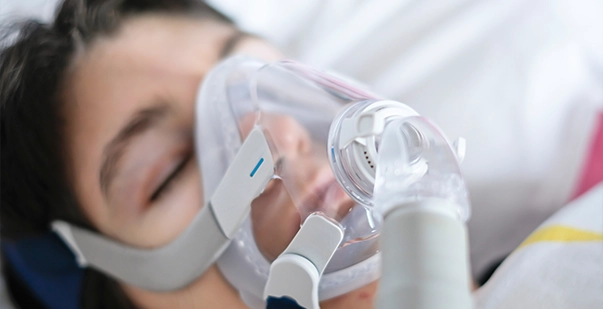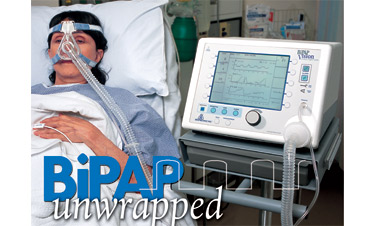BiPAP Rental: A Cost-Effective Alternative to Buying
BiPAP Rental: A Cost-Effective Alternative to Buying
Blog Article
Bipap vs. CPAP: Which Is the very best for Your Rest Disorder?
When browsing the complexities of sleep problems, the option in between BiPAP and CPAP treatment is a vital factor to consider. While CPAP supplies a consistent air movement ideal for obstructive sleep apnea, BiPAP's double stress settings may enhance comfort for those with more elaborate respiratory concerns.
Understanding Sleep Disorders
Rest problems encompass a variety of conditions that interfere with typical sleep patterns, influencing both the high quality and period of remainder. These disorders can show up in numerous forms, including sleeping disorders, rest apnea, narcolepsy, uneasy leg syndrome, and parasomnias. Each problem provides unique challenges, frequently causing considerable daytime fatigue, cognitive problems, and psychological disturbances.
Insomnia is characterized by problem dropping or staying asleep, while rest apnea entails repeated disruptions in breathing throughout sleep, typically leading to fragmented rest. Narcolepsy, on the various other hand, is marked by excessive daytime drowsiness and abrupt rest attacks. Troubled leg disorder creates uneasy sensations in the legs, motivating an uncontrollable urge to move them, which can also hinder the capability to drop off to sleep.
The impact of sleep conditions extends beyond individual wellness, affecting general productivity, connections, and lifestyle. Understanding the specific nature of each condition is vital for effective diagnosis and therapy. As sleep wellness ends up being significantly recognized as a crucial part of general wellness, resolving these disorders is essential for enhancing both rest quality and everyday functioning.
How CPAP Works
Constant Positive Respiratory Tract Pressure (CPAP) treatment is regularly employed as a main treatment for obstructive sleep apnea (OSA) The mechanism of CPAP includes using a machine that provides a constant stream of air with a mask worn during rest. This airflow keeps favorable stress in the air passage, preventing the collapse or blockage of the throat that can take place during sleep.
When a client takes in, the CPAP device gives a constant circulation of air, ensuring that the air passage continues to be open - BiPAP Rental. This not just relieves the signs of OSA, such as snoring and interrupted sleep patterns, yet also lowers the affiliated health risks, consisting of cardiovascular difficulties and daytime fatigue
The pressure setups on a CPAP maker can be personalized to meet specific client requirements, typically figured out with a rest study. Patients generally go through titration studies to locate the optimum stress degree for their distinct problem. Routine follow-up and modifications might be necessary to guarantee performance and convenience. In general, CPAP treatment has actually been revealed to significantly boost the high quality of sleep and total wellness for individuals dealing with obstructive sleep apnea.
How BiPAP Works
BiPAP, or Bilevel Positive Airway Pressure, is a customized type of non-invasive air flow that is especially helpful for individuals with problems such as intricate sleep apnea or respiratory system problems. Unlike CPAP, which provides a continuous stream of air at a solitary stress, BiPAP supplies 2 distinct stress setups: a greater inspiratory stress for inhalation and a lower expiratory stress for exhalation. This dual-pressure method permits for easier breathing, decreasing the effort required during exhalation.
The gadget operates via a mask fitted over the nose or mouth, linked to a maker that produces air stress. When the person inhales, the equipment supplies the greater pressure to aid with air flow, making certain that the respiratory tract remains open. Upon exhalation, the maker look at this now automatically minimizes the stress, making it a lot more comfortable for the individual to breathe out.

Secret Distinctions In Between BiPAP and CPAP

In comparison, BiPAP (Bilevel Positive Air passage Stress) uses 2 various pressure setups: one for breathing and a reduced one for exhalation. This twin stress system enables even more comfortable breathing, particularly for individuals that deal with exhaling against a continuous pressure. BiPAP is typically suggested for clients with complicated rest apnea, persistent obstructive pulmonary illness (COPD), or those that require extra assistance throughout rest.
Additionally, the complexity of BiPAP gadgets normally results in a higher price and requires more careful titration than CPAP. BiPAP Rental. Comprehending these vital differences can assist in identifying which gadget might be much more suitable for specific rest conditions, establishing the foundation for enlightened therapy choices
Picking the Right Therapy
The decision between BiPAP and CPAP treatment primarily pivots on the certain attributes why not try these out of the sleep condition, the client's general health and wellness, and their comfort with the device. CPAP, which delivers a continuous stream of air, is frequently prescribed for obstructive sleep apnea (OSA)
Conversely, BiPAP provides two levels of pressure: one for breathing and a lower one for exhalation. This dual pressure system is useful for people with complex rest apnea or those who experience difficulty exhaling against a continuous stress. Furthermore, BiPAP is usually recommended for people with respiratory system conditions, such as chronic obstructive pulmonary disease (COPD), where varying pressure setups can enhance comfort and conformity.
Inevitably, an extensive examination over at this website by a sleep expert, consisting of a sleep research study, can help figure out which treatment lines up best with the person's demands. Aspects such as convenience, ease of use, and particular medical conditions need to also be taken into account to optimize treatment end results.
Verdict
In recap, both BiPAP and CPAP offer distinct objectives in the administration of sleep disorders. CPAP works for obstructive rest apnea via regular air movement, while BiPAP uses double stress settings that enhance comfort for those with complicated sleep apnea or respiratory problems. The option in between these therapies need to be led by private demands and problems, necessitating a comprehensive analysis by a rest specialist to guarantee optimal therapy results and boosted high quality of sleep.

In general, CPAP treatment has actually been shown to significantly improve the top quality of rest and total wellness for people suffering from obstructive rest apnea.
BiPAP is usually recommended for clients with intricate sleep apnea, persistent obstructive lung disease (COPD), or those who need added support throughout sleep.
CPAP is efficient for obstructive rest apnea with consistent airflow, while BiPAP uses twin stress settings that boost convenience for those with intricate sleep apnea or respiratory system problems.
Report this page